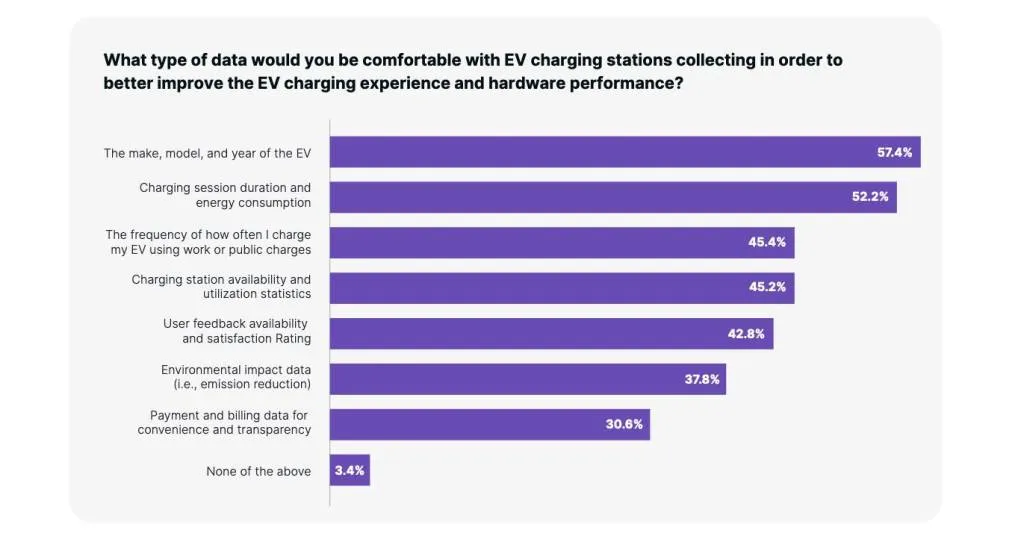Automakers tend to quote a figure often: That about 85% of EV drivers charge at home the majority of the time.
That said, survey results out this past week from EV charging software company ChargeLab underscore that the reality is more nuanced.
Looking specifically at those with home charging, the firm found that while that may be the case, 59.6% of those with access to home charging use public chargers at least a few days a week, while 8.2% of that home-charging group actually turn to public charging every day.
Workplace charging plays an important role, too. Just over 40% of the EV drivers surveyed have EV charging available there.
The results come from a periodic public charging survey released last week. ChargeLab provides an operating system for EV chargers built for the Open Charge Point Protocol (OCPP) communication standard. It’s based on a poll of just 500 EV drivers in the U.S. in the fourth quarter of 2023.
GM and Pilot Company’s EV charging network
Across all use cases, more than half of EV drivers were found to use public chargers every week. ChargeLab found that 30.9% of the EV drivers it surveyed use a public station “a few times a week,” while 22.7% use one “most days.”
Just over two-thirds of respondents said that they prefer apps as a way to find public charging, while more than two out of five said they use Tesla’s system. About 35% of respondents said that they primarily drive a Tesla EV, so it underscores that not all Tesla drivers keep to that ecosystem.
The results are the latest to point out that U.S. public charging issues aren’t as simple as laying out a highway road-trip network, and many EV drivers are relying on the public charging networks to supplement their charging at home. As J.D. Power pointed out with survey results last year, nearly half of shoppers see public charging as a dealbreaker. Charging station availability has ranked high among reasons for rejecting EVs.

ChargeLab survey – EV charging data privacy questions
ChargeLab also asked about data and privacy, and it noted that Americans are relatively open about sharing basic details like the make, model, and year of their EV—if it results in better charging performance or reliability.
According to the survey, which didn’t ask directly about EV charger cybersecurity concerns, nearly 70% of EV drivers would be willing to opt in to share at least some of their charging data for the sake of improving the experience. But that support wasn’t without boundary; it found about 57% were comfortable with that, while less than half were comfortable with the collection of individual charging habits or billing data.
Read the full article here



